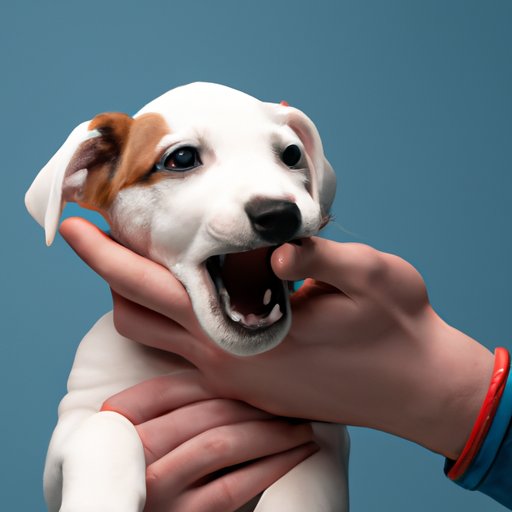
How to Stop a Puppy from Biting: A Complete Guide
Getting a new puppy is always exciting, but along with all of the joy comes a lot of responsibility. One of the biggest challenges that new puppy owners face is biting, a completely natural behavior for puppies. However, if not addressed early on, this biting can develop into a serious problem. In this guide, we’ll take a closer look at how to stop a puppy from biting, providing tips and advice to help ensure your furry friend grows up to be a happy and well-behaved dog.
Positive Reinforcement Training
Positive reinforcement is one of the most effective ways to encourage good behavior in puppies. Rather than punishing unwanted behavior, positive reinforcement focuses on rewarding desirable behavior. This method of training is proven to be more effective, while also creating a closer bond between you and your pup. When playing with your puppy, reward good behavior by offering praise and treats when playing calmly, rather than roughhousing. If your puppy starts to bite, redirect their attention to a toy or treat that they can nibble on instead. Consistency is key here, and with time, you’ll find that your puppy will begin to see good behavior as the norm, and misbehavior as less desirable.
Redirecting Behavior
Redirecting your puppy’s attention when they start to bite is important. Puppies tend to chew and nip when they’re teething or bored, and will look for the most immediate thing they can sink their teeth into. Offering an alternative chew toy or treat can help redirect their biting behavior. Playing tug-of-war with a rope toy, for example, is a great way to channel your puppy’s energy and biting instincts. Whenever your puppy bites or chews on something they shouldn’t, gently but firmly correct them, and offer an appropriate alternative at the same time. For example, if your puppy nips at your hand while playing, say “no” and offer them a toy instead. This redirection will help show your puppy what is acceptable behavior and what is not.
Socialization
When it comes to preventing puppy biting, socialization is key. Socializing your puppy with other dogs and people from a young age is essential for their development. It helps teach them appropriate behavior around other animals and makes them much less likely to bite. Take your puppy out for walks, to the dog park, and to socialization classes to help them learn how to interact with others. During playtime, supervise your puppy’s interactions, and intervene if you see any signs of aggression or excessive biting. By socializing your puppy, you give them the chance to develop important social skills, making them much less likely to behave aggressively as they grow older.
Consistent Behavior
Dogs thrive on routine, and your puppy is no exception. It’s essential to be consistent in how you respond to your puppy’s biting behavior to help them learn what is and isn’t acceptable. If you’re playful when your puppy nips at you one minute, then suddenly become strict when they do it again, they’ll be left confused and unsure. Simple things like not encouraging rough play, avoiding playing too much with your hands, and offering appropriate chew toys, can all help to reinforce good behavior and prevent biting.
Time-outs
In some cases, it may be necessary to resort to a time-out when your puppy bites repeatedly. Time-outs should be brief, and the puppy should be separated from the person or object they’re inclined to bite. This can help them to calm down and recognize that biting has negative consequences. When using time-outs for biting, make sure you’re consistent and clear in your approach, giving your dog the chance to learn what is and isn’t acceptable.
Professional Help
If your puppy continues to bite excessively, even after following the tips we’ve outlined above, it may be time to seek professional help. There could be underlying issues that are causing this behavior, such as fear or aggression, and an behavioral expert can help you identify and address these issues. When choosing an animal behaviorist, make sure to do your research and only work with skilled, experienced professionals.
Conclusion
Biting is a natural behavior in puppies, but it’s essential to address this behavior early on to prevent it from developing into a more serious problem. Using positive reinforcement, redirecting behavior, socializing your puppy, being consistent in how you respond, and using time-outs when necessary, are all effective ways to stop puppy biting. Remember to be patient, persistent, and always use positive reinforcement to encourage good behavior. With the right training and care, your pup will grow up to be a well-behaved and happy dog.




